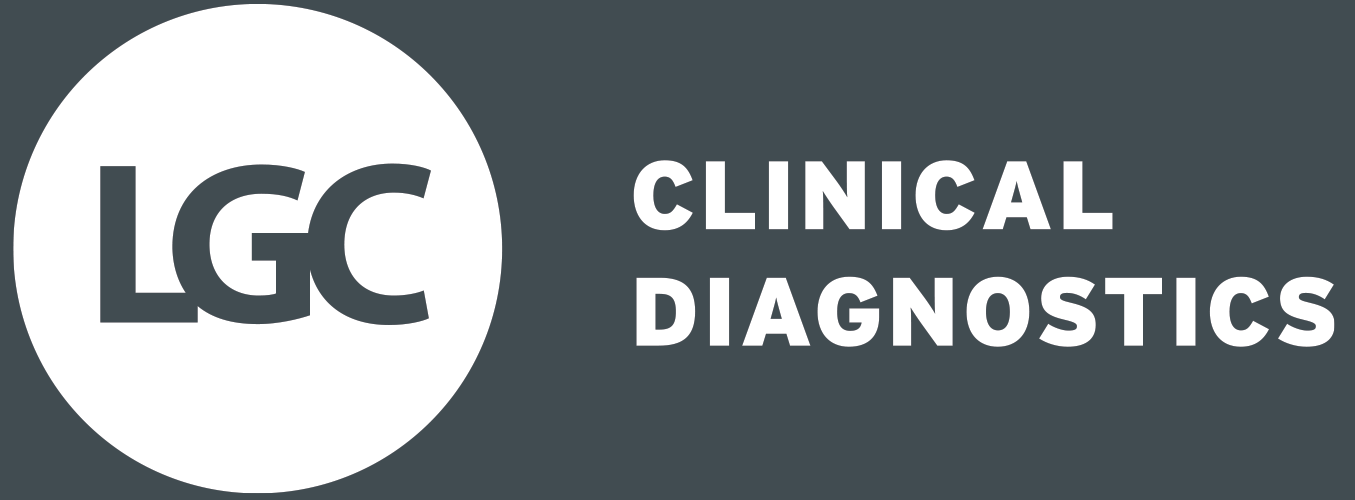On January 23-25, 2017 the Precision Medicine World Congress was held in Mountain View, California. The PWMC conference kicked off with Dr. Keith Yamamoto, Vice Chancellor for Science and Policy and Strategy UCSF, with Dr. Robert Califf, FDA Commissioner in a “fireside chat” format. Dr. Califf has been with the FDA for 2 years, has served as Commissioner for 11 months, but has resigned as of January 20th 2017. One of his important parting thoughts presented was how the FDA has been re-energized by the >21st Century Cures Act to hire new scientific talent to implement the President’s Precision Medicine and Cancer Moonshot plans.
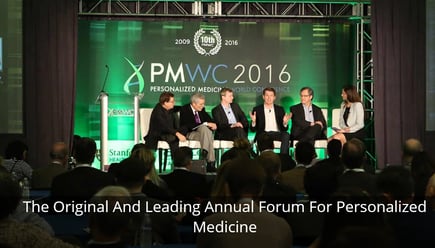
Comments about Laboratory Developed Tests from the outgoing FDA Commissioner
When asked about Laboratory Developed Test (LDT) regulatory status, he grimaced a bit and stated that the regulation of LDTs is unfinished business. Dr. Califf stated that we needed to “take LDT performance seriously” and that physicians today cannot determine whether a test is right. He summed up his frustration by stating “we are not there” in reference to the quality and performance of LDTs across the country.
Cures for cancer are possible
Dr. Jim Allison, Chair Department of Immunology and Executive Director Immunotherapy Platform at MD Anderson Cancer Center (Houston, Texas) gave an inspiring and hopeful presentation that cures are possible for cancer patients. Dr. Allison’s presentation covered the basic science advances and FDA approval for Checkpoint Antibodies to CTLA-4 and PD-1. He noted that the immune system is unleashed by anti-CTLA-4 antibodies as CD28 + T Cells can easily expand from just dozens to hundreds of thousands in circulation ready to fight metastatic cancer cells. Dr. Allison ended his presentation highlighting, as shown in the chart below, the fact that immunotherapy provides a number of patients with long term survival and that, in the near future, combination therapy has the potential to raise this long term survival baseline even higher.
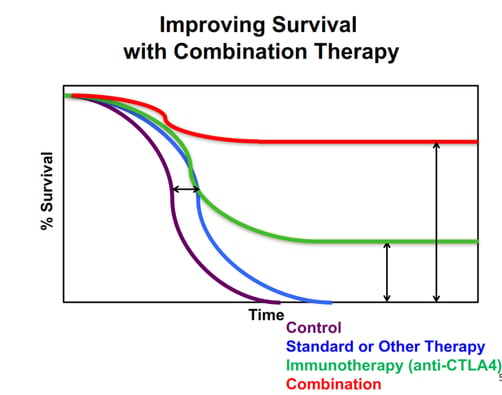
Achieving Accurate NGS Test Results
In the SeraCare-sponsored panel discussion titled Achieving Accurate NGS Test Results, Drs. Gregory Tsongalis (Dartmouth Hitchcock Medical Center, Lebanon New Hampshire) and Dara Aisner (University of Colorado School of Medicine, Aurora Colorado) provided their unique perspectives on the state of NGS testing in clinical laboratories today. Dr. Aisner is the Director of the Colorado Molecular Correlates Laboratory at the University of Colorado and a pulmonary pathologist. She presented her views on “Confronting and Mitigating Pre-Analytical Variability.” She presented a rich discussion of issues that labs must understand and face each day including how important it is to understand, monitor, and account for matrix effects due to mucin, chondroid, or even melanin. These variables can contribute to variability and poor quality. Another area highlighted by Dr. Aisner was the use of data to mitigate variability as shown in the chart below. She described how her laboratory not only reports percentage of sequences mapped to specific locations on the genome, but also does an analysis with metrics for percentage of sequences not mapped to a specific location while looking for a root cause, and also BLASTing these sequences to determine what content might have been missed.
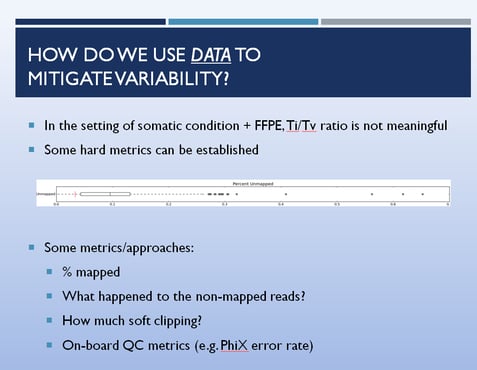
Clinical Next-Generation Sequencing Quality Control (QC)
Dr. Aisner was followed by Dr. Tsongalis who is a Professor of Pathology and Director, Clinical Genomics and Advanced Technology, from the Department of Pathology, Geisel School of Medicine at Dartmouth College. Dr. Tsongalis spoke to NGS assay QC in a talk titled “Where The Rubber Hits The Road.” Dr. Tsongalis shared his 3 years of experience offering clinical NGS services to cancer patients and emphasized the need for laboratories to validate, re-validate, and re-re-validate their assays paying particular attention to the bioinformatics pipeline. (Here is a video interview of Dr. Tsongalis about sources of variability from FFPE material. In the chart below, he showed data for an actionable EGFR mutation that was missed due to limit of detection, but was detected with an updated and re-validated pipeline. He also discussed the need for critical reference materials to ensure proper NGS validation.
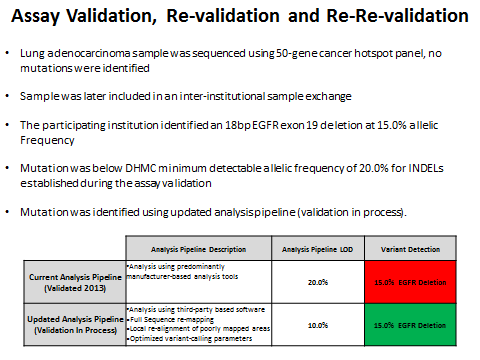
After their presentations, Drs. Tsongalis and Aisner also answered a flurry of questions from the panel moderator Dr. Russell Garlick, Chief Science Officer, SeraCare Life Sciences and from the audience. The question and answer period included discussions on:
1) What does increased transparency means to the clinical lab director?
2) What advice they would give to manufacturers of ctDNA assays and reagents?
3) Is there value in data sharing?
4) What unmet needs are they hearing about from their tumor boards?
5) What are their reference material needs?
For more information about SeraCare’s full line of reference materials for clinical genomics, click here.
